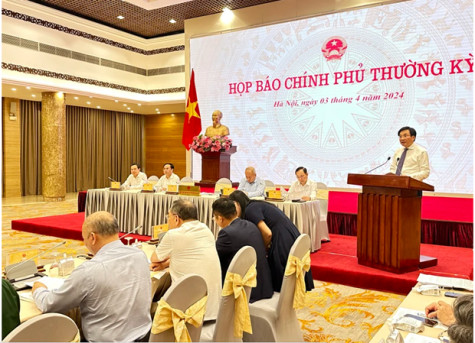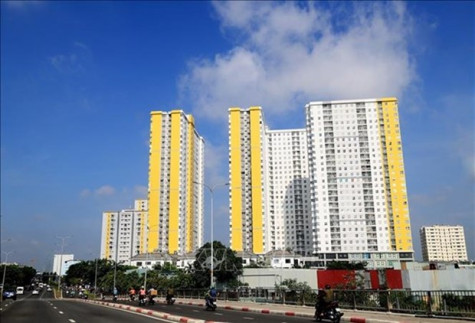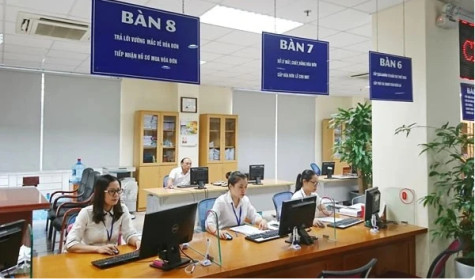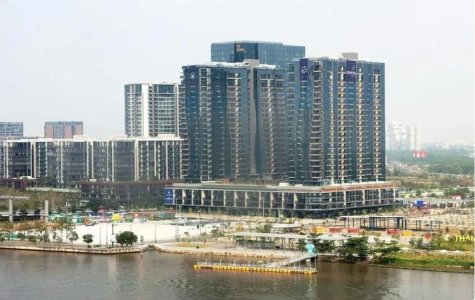The Labor Code (the Code) was passed in November 2019 and came into force from the beginning of 2021. The Code devotes a separate chapter, Chapter X, to providing regulations on female employees and assurance of gender equality.
State policies toward women workers
Under Article 135 of the Code, the State provides the following policies for female workers:
- Guaranteeing the right to equality of female employees and male employees, and implementing measures to ensure gender equality and prevent and combat sexual harassment in the workplace;
- Encouraging employers to create regular employment for female employees and male employees, and implementing the regime of flexible schedule, part-time work or home-based work;
- Applying measures to improve working conditions, raise occupational qualifications, provide healthcare services, and increase material and spiritual welfare for female employees so that they can bring into play their occupational capacity and harmonize their working activities with family lives;
- Adopting policies on tax reduction for employers that employ intensive female employees; and,
- Developing plans and measures to organize nurseries and pre-primary classes in labor-intensive areas, and formulating various forms of training to create standby jobs for women workers as suitable to their physical and physiological characteristics and motherhood.
The Code defines in Article 136 the responsibilities of employers in assurance of gender equality. Specifically, employers have to realize gender equality and solutions for promoting gender equality in recruitment, job placement, training, working time, rest time, wages and other regimes. They must also consult female employees or the latter’s representatives before deciding on issues related to the rights and interests of women.
Maternity protection
Regarding working time and rest time, Article 137 of the Code states that an employer may not ask a female employee to work at night, work overtime or go on a long working trip if: (i) the employee is at seven months or more of pregnancy, or at six months or more of pregnancy if she works in a highland, deep-lying, remote, border or island area; or (ii) the employee is raising an under-12-month child, unless she so agrees.
In addition, a female employee currently raising an under-12-month child is entitled to a 60-minute break per day during working time with full pay as stated in the labor contract.
For a female worker performing a heavy, hazardous or dangerous occupation or job or an extremely heavy, hazardous or dangerous occupation or job or occupation or job harmful to her reproduction and parenting functions during pregnancy, she will be assigned to do an easier job or a safer job or entitled to one-hour reduction of her daily working time without any reduction of her wage and rights and benefits till her child reaches 12 months. Of course, she must notify her pregnancy to the employer.
With respect to dismissal or termination of labor contracts, an employer may neither dismiss an employee nor unilaterally terminate the labor contract with an employee for the reason of marriage, pregnancy, maternity leave, or raising of an under-12-months child. This provision will not apply if the employer who is an individual dies, or is declared by the court to have lost his/her civil act capacity or to be missing or dead, or the employer that is an entity terminates operation or is notified by the specialized agency in charge of business registration under the provincial-level People’s Committee that it has no at-law representative or has no authorized person to exercise the rights and perform the obligations of the at-law representative.
In case her labor contract expires while a female employee is pregnant or raises an under-12-months child, she may enter into a new labor contract.
Noticeably, under Article 138, a pregnant employee may unilaterally terminate or suspend the labor contract if she obtains a competent health establishment’s certificate stating that her continued work will adversely affect her pregnancy. In this case, she must give a notice of such termination or suspension to the employer, together with the health establishment’s certificate.
Maternity leave
According to Article 139 of the Code, a female employee is entitled to prenatal and postnatal leaves of six months with prenatal leave not exceeding two months. If she gives birth to twins or more babies, from the second child onward, she is entitled to one more month of leave.
Before the expiration of the maternity leave period, the female employee may return to work after having taken at least four months of leave but is required to notify it in advance to the employer and get the latter’s consent. She must produce a certificate of a competent health establishment stating that early resumption of work will not adversely affect her health. In this case, she is still entitled to maternity allowance as specified by the law on social insurance, in addition to the wage paid by the employer for her working days.
Upon the expiration of the maternity leave period, the female worker may take additional leave without pay after reaching agreement with the employer.
The Code states that maternity leave will also be granted for male employees whose wives give birth, employees who adopt an under-six-months child, female employees as surrogate mothers, and intended mothers in accordance with the law on social insurance.
As per guarantee of employment after maternity leave, Article 140 of the Code reads that when returning to work after having fully taken the maternity leave, an employee may perform the former job with the same wage and rights and benefits as before the leave. In case the old job is no longer available, the employer has to assign another job to the employee with a wage not lower than that paid before the maternity leave.
Occupations and jobs that are harmful to reproduction and parenting functions
Unlike the 2012 Labor Code which provides prohibited jobs for female employees, the Code has an article, Article 142, on occupations and jobs that are harmful to reproduction and parenting functions.
Accordingly, the Minister of Labor, Invalids and Social Affairs is assigned to issue the list of occupations and jobs that are harmful to reproduction and parenting functions.
Meanwhile, employers have the responsibilities to provide sufficient information on the danger, risks and requirements of jobs for employees to make a choice, and guarantee the law-specified conditions on occupational safety and health for employees doing the jobs on the list.
(Source:VLLF)




























Xem thêm bình luận